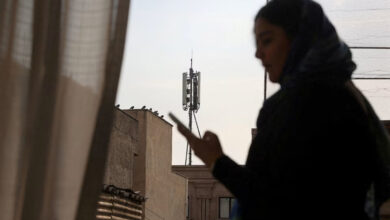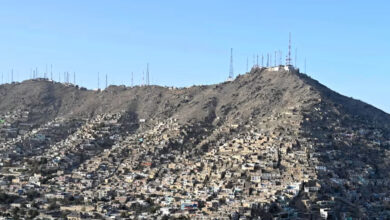New York–Before a popular revolt ousted Egypt's autocratic president this year, it seemed certain that a film about the desperation of Cairo's poor would never reach the country's cinemas.
The director of "Cairo Exit," Hesham Issawi, said the film was banned after he refused to make changes requested by Egyptian censors and then shot scenes behind the backs of authorities.
But following a wave of demonstrations that swept President Hosni Mubarak from power on 11 February, Issawi said he expected the ban to be lifted.
"Now, I think it will be different," he said in an interview following a screening of "Cairo Exit" at the Tribeca Film Festival in New York.
The film explores the sense of hopelessness that has driven Egyptians to emigrate, as well as the differences that have fragmented Egyptian society.
Filmed in Cairo one year before the 18-day uprising, it addresses some of the grievances that led to the uprising, Issawi said.
"During my time, people wanted to go to the States. That was the dream," said Issawi, who at 45 has lived in self-imposed exile in the United States for half his life.
"These last couple of years, everybody just wanted to get out. It didn't matter, rich class, poor class, they all just wanted to get out," he said. "It was like they just can't breathe."
"Cairo Exit" follows a young Egyptian couple — Tarek, a Muslim who wants to escape in Italy, and his Coptic Christian girlfriend, Amal, who also wants to get out but worries about leaving her elderly mother. For money, Tarek delivers take-out lunches to the ostentatious mansions of the city's elite, which are as alien to Cairo's sprawl as a European resort.
Issawi, who is Muslim, said his own teenage relationship with a Coptic Christian helped inspire the plot. And he said a reluctance to stir up tension among Egypt's religious communities has meant that very few Egyptian films offer complex portrayals of Coptic Christians.
It was the religious subject matter that got the film into trouble with state censors, whose approval is essential to being able to film on Cairo streets, Issawi said.
"One of the things that really bothered them in the script is they didn't want to have the girl be a Christian. They don't want problems with the Coptic community," Issawi said.
Eager to begin shooting and impatient with delays in the film's approval process, Issawi said he began work without receiving permission. To keep a low profile, the crew worked with small handheld cameras, he said.
Eventually, the film was rejected. To continue working, Issawi said he offered the state censors a fake script, which made it appear he was complying with their demands, and that script was approved.
"Our hope was, if we shoot the movie, and get it outside of Egypt and it gets sold outside Egypt, then it's gonna create a buzz. Then it kind of forces them to accept the movie," he said.
In the end, "Cairo Exit" became a case of "guerrilla filmmaking," with Issawi, the producers and the crew playing games with the authorities, he said.
By January of this year, the film had been completed and Issawi was planning to return home to California. When protests broke out in Cairo on January 25, Issawi said at first he avoided them.
But within a few days, as it become clear that something extraordinary was happening, Issawi and his wife, who is also Egyptian, joined the protests.
Now, Issawi is rethinking his own exile, and says he hopes to return to his homeland.
"Egypt now is very fertile," he said. "If we don't use this opportunity, nothing is going to happen. It's not going to be easy, it's not going to happen next year, but we have to build that."




